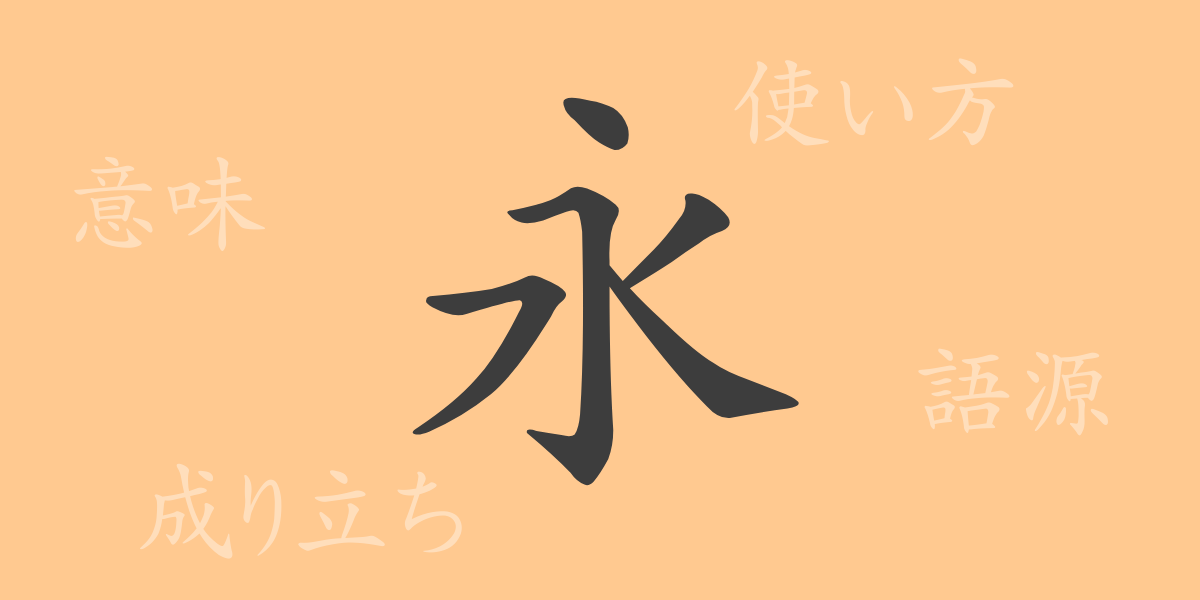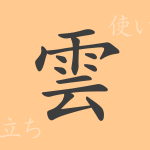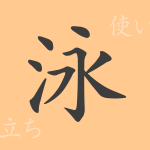“
The beauty of the Japanese language is also reflected in its characters. Among them, the common kanji “”永”” (Ei/Naga) is filled with a unique charm in its shape and meaning. In this article, we delve deep into “”永””, from its origin to its meaning, usage, reading, stroke count, and radical, exploring the rich world this kanji holds. We will also touch on compound words, idioms, and proverbs using “”永””, allowing you to feel the depth of the Japanese language.
The Origin of 永 ( Ei/Naga)
The kanji “”永”” evolved from ancient Chinese pictographs. Its original form is said to combine the radical “”水”” (Mizu), representing the flow of water, with “”勺”” (Shaku), meaning “”round””. This combination is thought to symbolize the meaning of “”eternity””, the endless flow of time. It expresses the unceasing continuation, without resisting the passage of time.
The Meaning and Usage of 永 (Ei/Naga)
The kanji “”永”” has the meanings of “”eternal”” and “”lasting long””. It is also often used in words such as “”永続”” (Eizoku, permanence) and “”永久”” (Eikyū, perpetuity), indicating a temporal expanse or immutability. In terms of usage, it is generally connected to adjectives or nouns.
Reading, Stroke Count, and Radical of 永 (Ei/Naga)
The kanji “”永”” has various readings.
- Reading: The on’yomi reading is “”エイ”” (Ei), and the kun’yomi reading is “”なが.い”” (Naga.i).
- Stroke Count: The stroke count of “”永”” is 5.
- Radical: The radical is “”水”” (Mizu, water), but according to the rules of stroke order, “”永”” is written in the order of “”dot, horizontal, vertical, sweep, press””, and “”永”” itself is also known as a kanji for learning the basic strokes called “”永字八法”” (Eiji happō).
Compound Words, Idioms, and Proverbs Using 永 (Ei/Naga) and Their Meanings
Some compound words, idioms, and proverbs containing “”永”” include:
- 永遠 ( Eien): Something without end. Continuing forever.
- 永久 ( Eikyū): Something that never changes.
- 永続 ( Eizoku): Lasting for a long time.
- 永劫 (Eigō): An extremely long time.
- 永世 ( Eisei): Something that remains unchanged throughout one’s life.
These words have the connotation that something continues forever, regardless of the passage of time.
Conclusion on 永 (Ei/Naga)
As its shape suggests, the kanji “”永”” represents time that continues endlessly like the ever-flowing water. This single character contains people’s wishes and the laws of nature, and its use in Japanese conveys the depth of culture and philosophy. Compound words, idioms, and proverbs using “”永”” reflect the values and thoughts of Japanese people, and each one tells of the richness of the Japanese language. Through this article, we hope that you have noticed the weight and beauty of the meaning that “”永”” holds and that you can further savor the depth of the Japanese language.
“

























